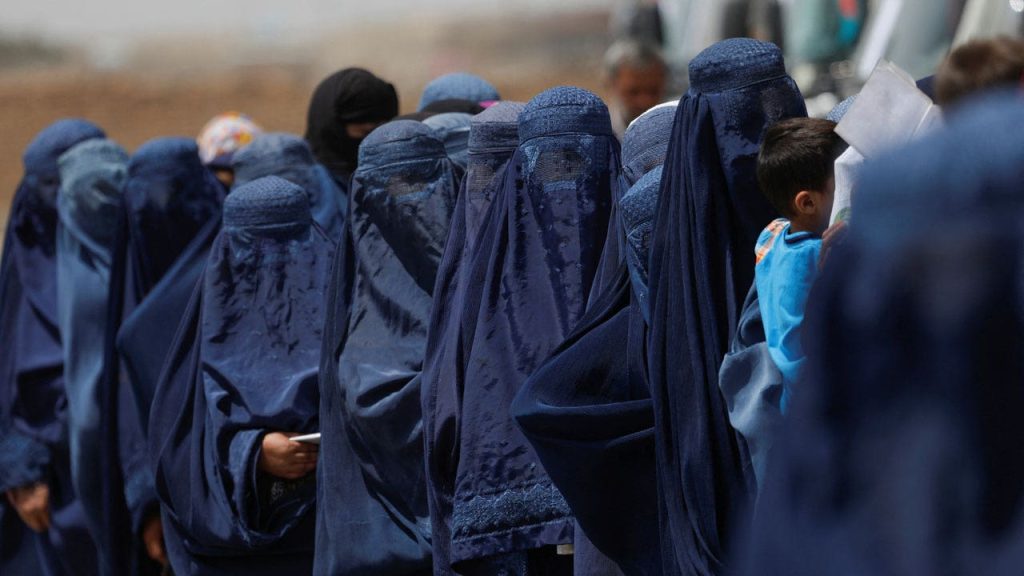At a United Nations Human Rights Council meeting, an Afghanistan ambassador was questioned about human rights violations, particularly those against women. The Taliban, which currently control Afghanistan, were not recognized by the U.N., so the ambassador appointed by the previous U.S.-backed government was questioned instead. Since the Taliban regained power, women and girls have been prohibited from attending high school or college, among other restrictions, leading to concerns about their human rights being systematically deprived.
Afghanistan’s Taliban leadership faced criticism over their human rights record at the U.N. meeting, with countries like the United States, Britain, and Belgium raising questions about the treatment of women by the Taliban. In total, 76 countries requested to speak at the meeting to address human rights issues in Afghanistan. The United States specifically asked how authorities would hold perpetrators accountable for abuses against civilians, particularly women and girls who are facing systematic human rights violations under the Taliban’s rule. The Taliban have defended their actions by stating that they respect rights in accordance with their interpretation of Islamic law.
In an unprecedented move, Afghanistan was represented by an ambassador appointed by the previous U.S.-backed government at the U.N. Human Rights Council meeting since the Taliban are not recognized by the global body. This absence of the current rulers raised concerns about how effectively human rights issues in the country could be addressed without the direct involvement of the Taliban leadership. The U.N. system mandates peer reviews of member states’ human rights records at public meetings, resulting in recommendations that, although non-binding, can draw attention to policies and pressure for reform.
The Taliban’s actions in Afghanistan have led to a series of human rights violations, with women and girls facing restrictions on education, employment, and mobility. Most girls have been barred from attending high school and women from universities, while female staff at aid agencies have been prevented from working, beauty salons closed down, and women barred from public spaces like parks. Travel for women is also restricted without a male guardian. Experts have noted tensions within the Taliban leadership based on different messages issued during the Eid holiday, which could have implications for how human rights issues are addressed internally.
The U.N. Human Rights Council reviews member states’ human rights records in public meetings, creating a platform for discussion and recommendations for improvement. While the recommendations are non-binding, they can influence policies and draw international attention to human rights violations. The U.N. Human Rights Council can also mandate investigations into human rights abuses, with evidence possibly used in national and international courts. The peer review process is essential for promoting and protecting human rights worldwide, highlighting violations and pressing for accountability among member states. Countries like Afghanistan facing scrutiny for human rights violations must address these concerns to safeguard the rights of their citizens.













